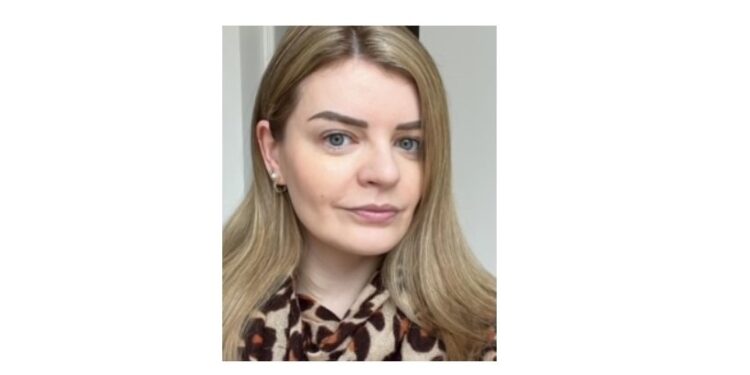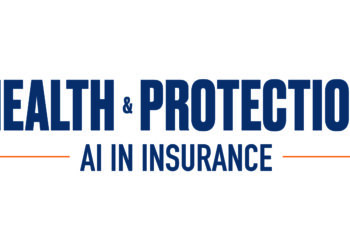Kicking off Breast Cancer Awareness Month, Sarah Morgan, people experience consultant at Zurich, speaks to Health & Protection about finding a lump she had never noticed before, why having private medical insurance (PMI) saved her life, the integral role her team and cancer specialist Reframe played in her recovery and the importance of women under the age of 40 checking their breasts regularly for changes.
Finding a lump
“I was diagnosed with breast cancer in July 2021,” Morgan (pictured) tells Health & Protection.
“I did have a breast cancer scare the year before, so I think that made me more aware of the signs and symptoms to look out for.”
Morgan reveals that her awareness of cancer had heightened as just a couple of months earlier her brother-in-law had been diagnosed with an incurable brain tumour.
“I found a lump on the edge of my right nipple that I hadn’t noticed before,” she continues.
“That was one evening and the next day I made contact with my private healthcare provider and I was able to see a consultant in less than 24 hours.
“Our provider was Bupa at the time. We’re not with Bupa anymore. We’re with WPA now, and I have also made subsequent claims related to my cancer with them since they became our private healthcare provider.”
Support from her team
But Morgan adds her manager and her team at Zurich also played an instrumental role in supporting her through her cancer journey.
“My manager and my team were amazing,” she says. “They were really, really supportive and continue to be so.
“The way Zurich has supported me over the last few of years has really strengthened my connection to them as employee.
“Zurich were really flexible about the hours that I could work and the duties I performed because I did come in and out of work during my cancer journey.
“There were times where not a lot happened so it was just sitting around waiting for results, and working was really beneficial for my mental health, but then there were other times where it wasn’t really feasible to work like when I had surgery.
“Working when I could was actually really important for me, keeping busy and feeling productive helped to provide distraction at times when I needed to be.”
Life saving diagnosis
And in Morgan’s case, having PMI cover in place may have saved her life.
“Having private healthcare was really important for my diagnosis and treatment,” she explains. “I was able to get the help I needed much quicker than through the NHS.
“I also had my access to mental health support through the employee assistance programme and also through private healthcare as well.
“Once I was diagnosed with cancer, I was advised that I had a genetic mutation that put me at high risk of further recurrences,” Morgan adds.
“It’s called CHEK2.1100delC. I was actually told by my oncologist at the time that this genetic mutation was only picked up because I had a more detailed genetic test privately.
“On the NHS they wouldn’t have tested for this.
“I was advised to have a bilateral mastectomy with a diep reconstruction where they use tummy fat to reconstruct new breasts. It’s quite a major surgery. It was 10 hours long and the recovery was about three months.
“It was quite intense.”
Additional support
Morgan also benefitted from group income protection. This enabled her to tap into rehabilitation support and services from workplace cancer specialist, Reframe.
“Having access to Reframe was so beneficial,” Morgan explains.
“Reframe provides support for up to two years through your cancer journey and you can use them as and when you need them.
“For me, they provided one-to-one support through an assigned cancer nurse and also arranged a second opinion with an oncologist.
“Reframe don’t bombard you with contact. They seem to know when to check in. They seem to time it really well and the people who work there really understand how to talk to you when you’re going through quite a traumatic situation. They’re really empathetic.
“I feel really lucky that I’ve had Reframe to call upon in the last couple of years.”
Being cancer free
Looking back at her journey, Morgan says she has learned just how important private healthcare is and how resilient she is.
“I’ve learned I’m pretty resilient,” she continues.
“Although cancer is a physical illness, there is such a strong mental element to it as well.
“I am cancer free, but I know that I need to be vigilant.
“My genetic mutation puts me at a higher risk of bowel cancer as well so I’m on a screening programme for that cancer as well. I have to have colonoscopies every five years.
“I don’t think that once you’ve been through cancer it completely leaves you, but as time goes by, it’s not at the forefront as it was previously.
“Last year, I moved into a people experience job role that is giving me the opportunity to shape and deliver our wellbeing proposition here at Zurich (including that around cancer).
“Being in this position has meant that I can use my experiences to help Zurich to continue to support employees going through cancer in the best possible way.”
Importance of checks
But one really important lesson and message Morgan wants to get across was that breast cancer can afflict younger women as well as their older peers. So it’s vitally important all women “know their lemons” and check for the signs of breast cancer.
“I really want to flag that I was quite young to be diagnosed,” Morgan says. “I was in my early 30s.
“It does tend to be older women who are diagnosed, but cancer can affect someone at any age. It could happen to anybody, it happened to me.
“Women should check their breasts regularly for any changes.”
Wonderful to see Sarah flourishing
Morgan was supported by Reframe Cancer nurses Margarida Rodrigues and Lorraine Park. And Rodrigues adds it is wonderful to see the recovery Morgan has made.
“With Reframe, patients can easily talk to someone who knows about the cancer pathway, whether this is via NHS and/or privately,” Rodrigues says.
“We can signpost to many different types of support and resources that are invaluable to helping people through their journey – from organising second opinions to guiding people through their cancer treatments and providing them with extended support with all aspects of life after cancer treatment, when regular visits to the hospital are no longer needed.
“I use my knowledge and experience to support patients through cancer but, ultimately, help them feel empowered to make their own informed decisions.
“We make a huge difference in people’s lives and it’s wonderful to see Sarah flourishing after everything she has been through.”






